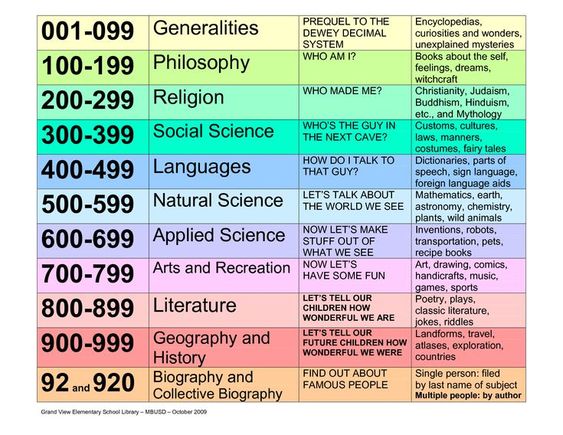For editors, it pays to specialize

There are a million editors out there. If you aspire to make a living as one, you can’t just be “an editor” — because only those who specialize will be paid what they’re worth.
(Author’s note — I’ll now resume posting mostly about writing, editing, and books. Thanks for your tolerance of my political posts during the last month.)
How to earn a living as an editor
I recently spoke with a woman who’s working on a career shift — she’s currently working in a field based on highly specialized knowledge, but would like to focus on writing and editing in the future.
My advice: specialize. Start with the topic you already know a lot about.
If you just toss your desire to work into one of the freelance hiring sites, you’re competing with thousands of others. This guarantees that you’ll get paid the absolute minimum amount. At best, you’ll end up working insane hours on subsistence wages. That’s no way to make a living.
Editors who do better than this have two or three advantages:
- Referrals. Their clients tell others that they do a good job, which generates leads.
- Higher rates. They get paid what they’re worth by people who value their contribution.
- Optionally, content marketing. They write about a topic, which attracts clicks that turn into potential clients.
How specializing helps
Specializing means deciding not just how you edit, but what you edit.
For example, I edit books and articles by business authors — mostly people aspiring to turn their expertise into influence. I don’t just specialize in business books, I specialize in business books about technology or marketing trends.
You could specialize in horror fiction, statistics-based research reports, email marketing copy, memoir, medical writing, or music writing. People write billions of words; most of them need an editor.
Once you specialize, you get to know the jargon and conventions in an area. This makes you a better editor — you’ll not only help clients more, you’ll be faster. This allows you to charge a higher rate. Your clients will be more willing to pay it, because you’ll understand the context of their work.
You’ll get referrals, because horror writers know other horror writers, business authors know other business authors, and email marketers know other email marketers.
And if you publish a blog or podcast for content marketing, you’ll attract the right niche audience. There are probably thousands of blogs on writing and editing. But there are probably only a few on writing and editing about statistics and surveys.
How this works in practice
I’m going to use my own practice as an example, but your experience will likely be similar.
Here’s a list of some of my recent clients and how and why I got them.
- Customer experience book. Referred by a fellow business author.
- Productivity business book. Referred by a former colleague; this is my second project with this author.
- Academic’s book about innovation. Attracted by my blog.
- Self-help book about networking. Attracted by my blog.
- Entertainment entrepreneur’s memoir. Referred by a contact who works with business authors; attracted to my experience as an entertainment analyst.
- Memoir of Ph.D. entrepreneur with a military background. Referred by a contact who works with business authors.
- Business book about AI. Referred by a publicist and a hybrid publisher.
- Business book about the future of transportation. Referred by producer of a video series about business leaders.
- White paper about the future of work. Former colleague.
- Article about platforms and business networks. Referred by book publicist.
- Marketing copy for a security startup. Referred by a fellow business author.
Are you starting to see the point? These people all have a lot in common. Their projects are all business-oriented nonfiction intended to establish influence and thought leadership. They all have a similar audience — businesspeople — and similar goals.
This makes it easy for me to get really good at knowing what they need and doing developmental editing to deliver it. It allows me to talk to them at a level they understand, without them having to explain things that a less experienced editor wouldn’t understand. And when I tell them “It has to be this, and not that,” they tend to trust me, because my knowledge comes with the weight of all that experience.
People have approached me to get help with work outside this niche — non-business memoirs, for example, or fiction. I tend to give up on them, or they on me. Because, frankly, I’m not worth the rates I charge once I’m outside of my niche — my expertise is missing, so I’m just another editor.
Developing your editorial career
Here’s how you can get enough high-paying clients to make a living.
First, pick a specialty. Something you know about.
Second, get a writing and editing job in that specialty, so you can work in it every day. Alternatively, use word-of-mouth to line up a few anchor clients so you can complete some jobs and use them to prove you know what you’re doing.
Third, find a mentor. Find somebody else in your niche and check in regularly with them. They’ve learned a lot of what you know. And they may pass down jobs that they don’t have the capacity to handle.
Fourth, join a professional organization in that space. Network with people who work on the same topics.
Finally, turn down work outside your space. If it won’t burnish your bona fides, why waste time on it?
This takes years. But it’s the best way to build up your clientele and business to the point where you can be paid enough to live as an editor.
Glad you’re back to writing about writing.
It was a momentary diversion, required by the demands of the moment.
I will go back to “professional” from “citizen” now.